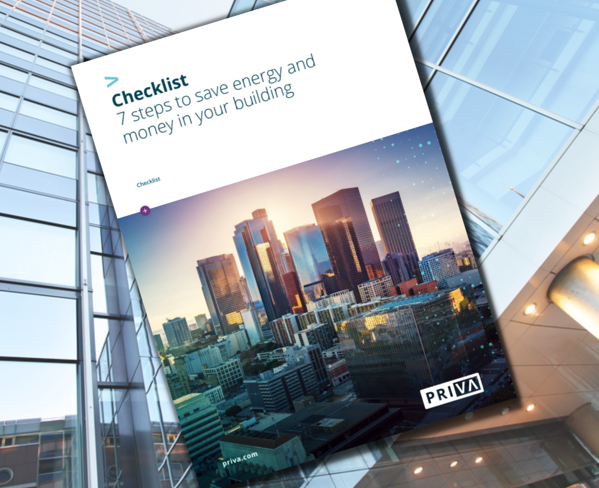Understanding EU building energy efficiency laws and regulations
The EU has set a goal to reach net zero by 2050, as well as reducing energy consumption by at least 11.7% by 2030. With the built environment accounting for 40% of global emissions, this sets forth a strong precedent for energy efficienct buildings. These are the must-know regulations for energy efficiency in the EU:
1. Minimum Energy Performance Standards
The EU Minimum Energy Performance Standards (MEPS) is a system that sets out to enforce the renovation of the worst performing buildings via Energy Performance Certificates (EPC). All buildings are graded on a scale from A to G based on their energy efficiency, with A being the most efficient and G being the worst. The rating G makes up the worst 16% of buildings in a country, with the rest proportionately distributed between bands A and F.
Updated in 2023, the EU MEPS details that existing buildings in EU countries will be legally required to meet minimum energy standards. Public and non-residential buildings must meet an EPC rating of at least F by 2027 in order to be sold or rented, and to at least EPC E by 2030. Residential buildings must achieve an EPC of F by 2030 and at least E by 2033.
MEPS is part of the Energy Performance of Buildings Directive, which aims to achieve fully decarbonised building stock by 2050. It was most recently updated in March 2024, including calls to phase out fossil fuel boilers by 2040, putting solar panels on houses where economically viable, and ensuring new buildings are zero-emissions from 2030. The updated directive must now be formally endorsed by the Council of Ministers to become law.
2. Energy Efficiency Directive
The Energy Efficiency Directive is a Governance Regulation that mandates EU countries report on energy efficiency measures, including energy performance contracts. The aim of this directive is to ensure transparency and accountability in organisations throughout the EU.
After a revision in 2023, the directive set indicative national contributions based on criteria such as GDP per capita and energy intensity. In doing so, each EU country is responsible for upholding its own segment of energy efficiency improvements over the coming years.
Heating and cooling in the built environment are also addressed under the directive, which aims to gradually change minimum requirements and integrate renewable energy and waste heat into the system. From 2030, the installation of any new fossil fuel-based heating and cooling systems will be banned. Climate change is drastically impacting the importance of efficient heating and cooling systems in the EU, with heatwaves accounting for up to 129,000 deaths in Europe over the past 40 years. This represents about 90% of all climate related fatalities.
Subsidies available for energy efficiency improvements
Grants and subsidies vary from region to region, meaning that available funding for decarbonisation in buildings will depend on your location. For example, in the European Union there are several funding streams available for financial buildings renovations. These include the European Structural and Investment Funds (ESIF) and the European Fund for Strategic Investments (EFSI). Even within the EU, national measures for funding energy efficiency are different from country to country, as laid out by the Energy Performance of Buildings Directive – so be sure to check funding pots in relation to your country or region.
How to improve energy efficiency in buildings?
It is likely that commercial landlords will want to take a very proactive approach if they are going to protect the value of their estates. For those leasing out office spaces, the pandemic and the ‘work from home’ trend have impacted demand significantly. There is no question that future tenants will be seeking spaces that are highly cost- and energy-efficient.
The business case for energy efficiency extends beyond tenant demands. Landlords unable to achieve compliance may face major complications. This includes, at worst, being unable to rent out their buildings if they do not achieve the minimum levels of energy performance.
Next steps for businesses involve implementing these energy efficient measures – but where should you start? From lighting to building automation solutions, there are a variety of ways to tackle the quick-wins when it comes to decarbonising your building. Use this 7-step checklist for to get started with energy saving solutions you can implement immediately.
Energy efficiency building solutions
Fortunately, the rise of energy efficiency solutions that can be applied to existing buildings means that achieving massive improvements is much easier than it was even five years ago. Priva itself is a major player, and over time has evolved a range of building automation and energy management solutions – to which digital cloud-based services are a recent addition.
The Priva Blue ID building management system can significantly reduce building energy consumption (and therefore environmental impact). Our intelligent building technologies support landlords and building owners / operators who need to comply with EU regulations. This system streamlines installation by being independent of field equipment, allowing for the reuse of existing equipment and cabling, making it ideal for renovations. With its IP-based messaging, users can access Priva Blue ID anytime, anywhere, enabling comprehensive energy monitoring and reporting for flexible adjustments. This results in substantial double-digit percentage energy savings, benefiting a wide range of customers from larger organizations to primary schools and smaller office blocks, with options like the S-Line for mission-critical environments and the compact C-line HVAC controllers.
As buildings evolve to meet the demands of the future, Priva Digital Services provide the accessibility, scalability, and resilience necessary for optimal performance. Priva Energy Insight, powered by ErbisOne, is a cloud-based tool that allows building, energy, and facilities managers to monitor their energy, cut costs, and improve comfort and wellbeing. By leveraging smart technology, Priva empowers users to reduce consumption, improve efficiency, and embrace renewable energy sources.
It’s time to futureproof your building against climate change and EU energy efficiency measures – and we’d love to help. To find out more about the role Priva’s technologies play in delivering more energy efficient building operations, please drop us a line.




















